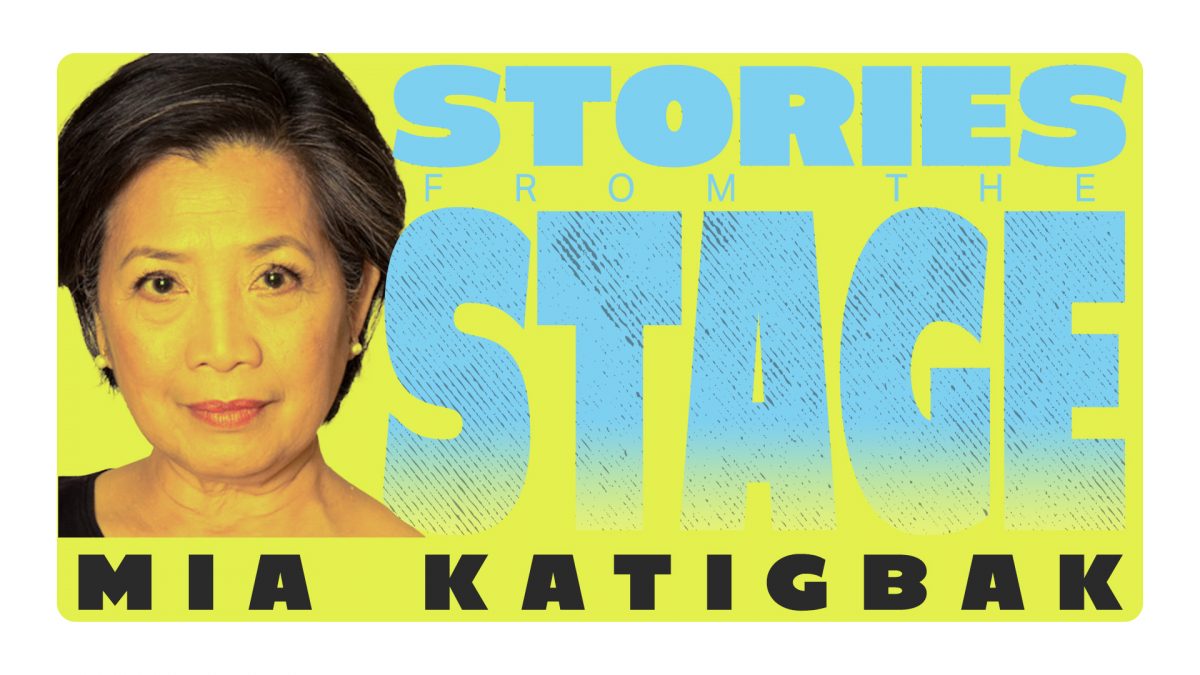I lost my memory during intermission of Ma-Yi Theatre’s production of Alice Tuan’s Last of the Suns.
I was in the cast.
Before the act ended, I made my exit, walked to the wings and stood motionless for the last quiet moments of the scene. I held my breath so I wouldn’t make a sound, and because I had to desperately empty my bladder.
Blackout. Exhale. I hurriedly made my way to the bathroom backstage. Fade out.
Fade in. Four hours later. A plastic bag with my street clothes crosses my line of vision. Fade out.
Fade in. About ten minutes later. I’m standing beside a hospital bed in said street clothes, looking down and thinking it odd that I’m wearing my shoes from the show. Fade out.
Fade in. A few minutes later. I’m walking out of the hospital smoking a cigarette, with my friends Ching Valdes-Aran (who played my father-in-law) and Jorge Ortoll (the producer), who are arguing about whom I should spend the night with. I have no idea what they’re on about, I’m slightly perplexed about the circumstances, and in the cab on our way uptown, they finally tell me the whole story.
When we received our “places” call after intermission, I dutifully complied, and asked one of the actors what happened next. Thinking I was being funny, she reminded me that in the scene coming up my husband threatens me with a kitchen knife. I laughed, then a few seconds later asked the same question. She thought I was milking the joke, but saw that I was in earnest, and after I asked yet again, she decided something was wrong. She informed the ASM, who passed the message to the PSM, and then those words, “Is there a doctor in the house?” followed. There happened to be one and she came to examine me in the dressing room. She asked me if I knew where I was. I said no, but told her I recognized my make-up bag on the dressing room table.

She led me to a chair by an open doorway. Surrounded by the cast, she asked me my name, my address, my phone number. I answered correctly. She asked me who the president was, and I replied “Bush.” Then she asked me the year and I wasn’t sure. It was 2003 and I may have been confused by which Bush I meant. She then asked me if I knew any of the people surrounding me. I knew most of them, but I politely told the gentleman who was holding my hand and comforting me that I didn’t know him. The doctor’s diagnosis was TGA, Transient Global Amnesia (a great name for a rock band, my friend Jessica later tells me), which affects short term memory. I had worked with many of the cast for several years, but had only met the very kind hand-holding actor when we began rehearsals for the show. I went to the emergency room of Beth Israel, the closest hospital, accompanied by several friends from the show.
Over the next four hours, my poor friends, who took turns keeping me company, were subjected to the same question over and over again: “did we finish the show?” They started to quote lines from the play addressed to the 100-year-old character Ching was playing, who asked for the time incessantly and immediately forgot the response. “You fucking c**t, I said no!” “You ask me again and I’ll slap you.” I’d laugh, then ask it again. Jorge begged the doctor to tranquilize me to put them out of their misery, but that was a no-no in cases like this because my brain had to be monitored without medication. They just had to wait until I started to get normal again. After which I couldn’t be left alone for the next 24 hours.
Although I never lost consciousness, those four hours are forever lost to me. I only had my friends’ accounts of what had transpired. My doctor explained the condition in the cinematic way I experienced it. If we think of memory as a life-long compilation of movie reels, the progression of frames forming the narrative of our experiences, TGA expunges a frame just as the next one is being developed. So for four hours there was nothing there. It can also temporarily compromise earlier sections of the reel. As I started to recover, more frames became viable, hence the fade outs and fade ins, until there were no more fade outs.
How odd that although I remembered nothing after my walk to the restroom, my only preoccupation despite TGA was whether we finished the show or not.
Ching won the argument and I went to her apartment from the hospital. I couldn’t sleep until I had said the entire play in my head. I didn’t perform the next two nights, and when I went back to the show, I devised a ritual. I arrived at the theatre two hours before curtain. I sat in the house and sipped a bottle of spinach/aloe/berry/banana juice. I asked all the ghosts of that venue to be my friends. Then I took a ½ hour nap in the house, entrusting myself to their care.
I finished the run without memory-related incident, pondering on the actor’s brain’s tenacity, holding on to our responsibility to performance, frames expunged or not.

Mia Katigbak is the Artistic Producing Director and co-founder of NAATCO (National Asian American Theatre Co). She is the recipient of an Obie Award for performance (2014) and a Special Drama Desk Award in 2019 for her vital presence as the artistic director of NAATCO and sustained excellence as a performer and mentor.
Please tune in beginning Thursday, November 19th at 8pm through Monday, November 23rd to see Mia Katigbak in Neil LaBute’s World Premiere adaptation of Anton Chekov’s UNCLE VANYA. Tony Award winner Alan Cumming takes on the titular role joined by Constance Wu, Emmy Award winner Samira Wiley, K. Todd Freeman, Anson Mount, Mia Katigbak, Manik Choksi and Academy Award Winner Ellen Burstyn. Gabriel Ebert narrates the proceedings in an evening directed by Danya Taymor (Heroes of the Fourth Turning). Tickets from $5 and are available only on TodayTix. Proceeds go to benefit The Actor’s Fund.
